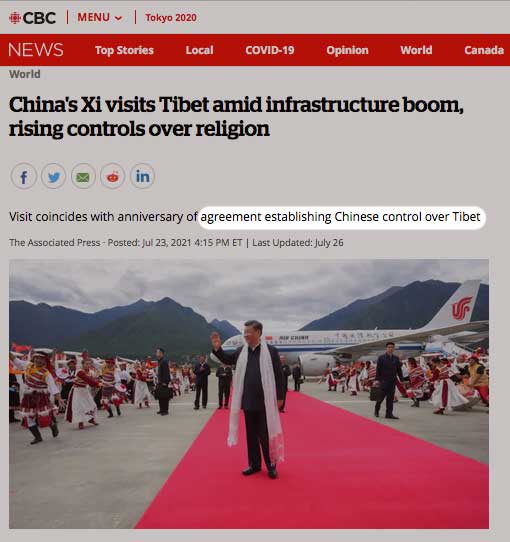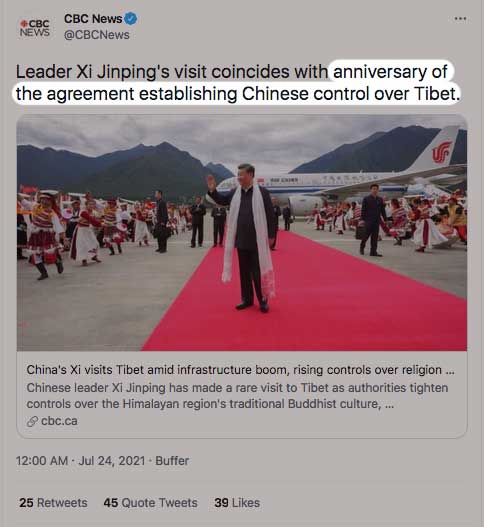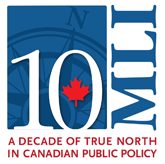A recent CBC News report about the anniversary of the Chinese government’s occupation of Tibet included a misleading sub-headline about how the Chinese government came to occupy Tibet. The sub-headline incorrectly states that “Chinese control over Tibet” was based on an “agreement.” By definition an “agreement” is found in “harmony or accordance in opinion or feeling.” In contrast, the “agreement” on Tibet was imposed through the threat of overwhelming force and violence by the Chinese communist regime in 1951. As such, it is not an “agreement” and referring to it as such only reinforces Chinese state propaganda and legitimizes its occupation of Tibet.

Tibet was invaded by communist Chinese forces in 1949. In 1951, with 40,000 troops in Tibet, the Chinese government imposed the “17-Point Agreement for the Peaceful Liberation of Tibet” through the threat of violence, leaving Tibetan leaders with little choice but to accept Mao’s demands. The document included a guarantee of autonomy for Tibet. Like its 1984 agreement with Britain about the future of Hong Kong, this guarantee was never honoured by the Chinese government.
The “17-Point Agreement” remains a central narrative of Chinese government propaganda that is intended to legitimize its ongoing occupation and repression of Tibet.
Another claim used to justify China’s occupation is that Tibet was never independent, and that an independent Tibet is “a product of imperialist aggression against China in modern times.” Indeed, China’s occupation of Tibet is twisted by state propagandists as “liberation,” which supports “the shared aspiration of all ethnic groups in Tibet.”
However, since China’s “agreement” in 1951, over a million Tibetans have been killed, thousands of monasteries have been destroyed, and many thousands of Tibetans have been imprisoned. Tibetan-Canadian activists who advocate for their nation’s independence also face threats of sexual violence and death from Chinese government agents both in China and beyond.
Western journalists must take care in their reporting to avoid inadvertently repeating and reinforcing malign foreign propaganda narratives that could legitimize the illegal activity and abuses of those regimes.



